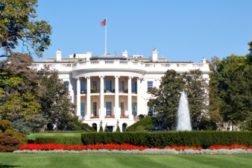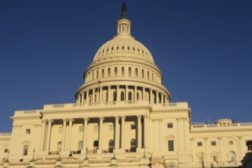Home » Keywords: » oira
Items Tagged with 'oira'
ARTICLES
Government watchdog group frustrated with Obama’s weak regulatory agenda
Silica exposure rule could see movement, though
July 22, 2013
Senator blasts OMB over delayed regulatory reviews
OSHA’s silica standard: 829 days and counting
May 15, 2013
AIHA urges OMB to end delays, complete review of proposed silica rule
Warns about "political influence"
November 10, 2011
Become a Leader in Safety Culture
Build your knowledge with ISHN, covering key safety, health and industrial hygiene news, products, and trends.
JOIN TODAYCopyright ©2025. All Rights Reserved BNP Media.
Design, CMS, Hosting & Web Development :: ePublishing





